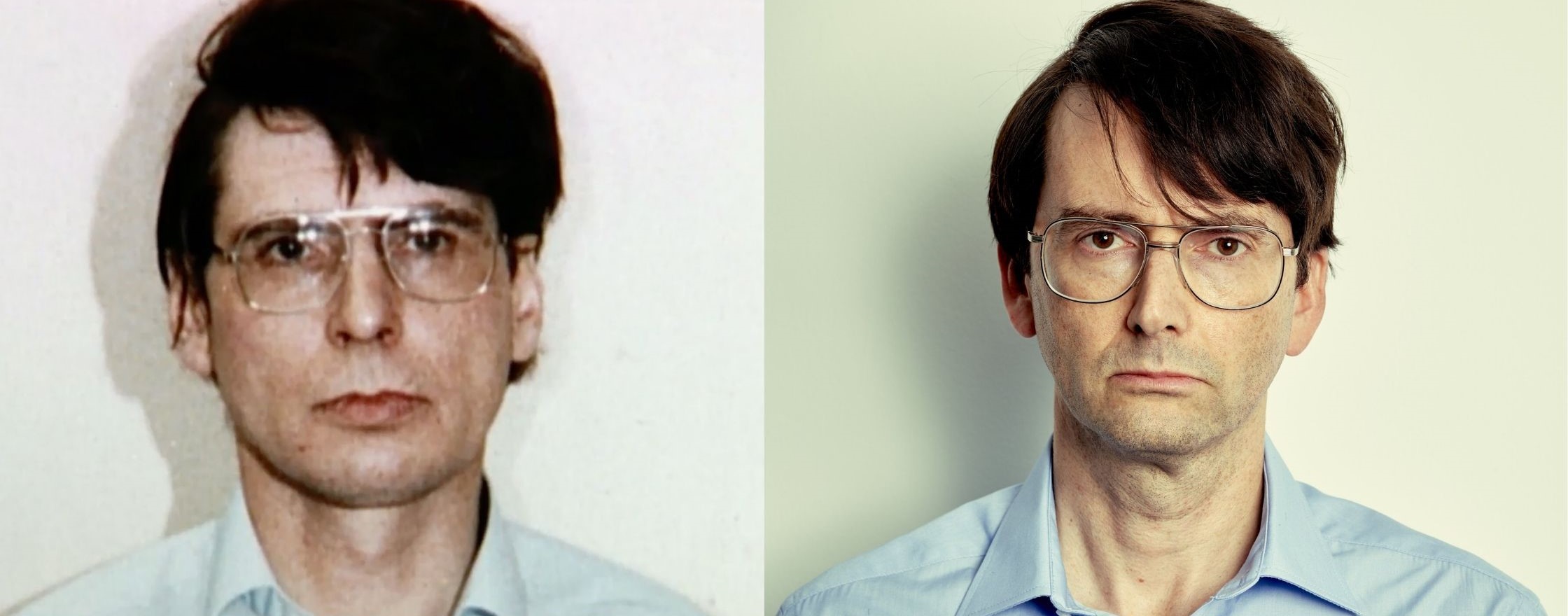
TV Critic David Cohen is disappointed by ITV’s chilling dramatization of serial killer Dennis Nilsen, arguing it lacks direction
ITV’s miniseries Des is a unique piece of television; exploring the case and conviction of London serial killer Dennis Nilsen, played by David Tennant, the series straddles a difficult line that does its best to perform, but inevitably sucks it of gravity.
The star of the show, both in credits and in talent, is undeniably Tennant’s bone-chilling interpretation of Nilsen. Never once raising his voice, Tennant takes the hollow-eyed, sagging face of the murderer and elaborates in every way. The apathy and disconnection Tennant brings to every scene is genuinely frightening at points, mastering a balance between ‘being a bad guy, or being an outrageously bad guy.’
The star of the show is undeniably Tennant’s bone-chilling interpretation of Nilsen
His performance is complemented by Jason Watkins (Brian Masters), who tries his best to play Nilsen’s biographer, but has no fat to chew on. With limited personality, Watkins is demoted to reacting to everything around him. Stifled under the weight of a show that leans to the detail of the crimes rather than their impact on the people involved, the misuse of the extended cast feels a bit lazy. The show simply doesn’t know what to do with them.
And that is the main issue for Des; focus. Constrained to only three episodes, there is no air left in the story. Every moment away from Tennant feels flat, contrived, and at certain points, plain boring. This leaves the series less a twisted tale of terror, and more like the re-enactment of a Wikipedia page.
Though perhaps, that is the point of Des.
Our cultural captivation with the Ted Bundys and Dennis Nilsens too often lead to romantic feelings that these are broken men. Ill people. Individuals who have suffered.
Not a complex murderer, Des treats Nilsen like an empty witness to his own crimes
Whilst that may be fact, Des refuses to condone Nilsen’s butchery as the product of illness or abnormality. It doesn’t care to expand on his motives because it knows that, despite the series title, he is not the protagonist. He is a villain and deserves no fascination. Not a complex murderer, the series treats Nilsen like an empty witness to his own crimes.
Nonetheless, this message is a reach. To find a point or meaning is challenging to say the least. Standard editing and unassuming cinematography assists in the mundane setting of North London, but only hinders the impact on the audience.
Perhaps Des is a show that, instead of a drama series, deserved a documentary, something clinical and more unflinching that could do the barbarity of the crime’s justice. Caught between wanting to be a cerebral story of a vicious criminal, and a sanitised advertiser-friendly program, Des chooses no directions. One thing happens, it is overcome. A second thing happens, it is overcome, until eventually the credits roll.
Perhaps Des is a show that, instead of a drama series, deserved a documentary
Though tied together by a magnetic performance and a potentially interesting story, Des fails to explore. The series has limited resources, just under 2 ½ hours long and not the most intricate of plots, and yet tries to be two shows: a crime procedural following the elbow grease of an investigation, as well as a study into the mind of a mass-murdering master manipulator. Ultimately, it is an interesting few hours. Mostly an inoffensive watch, studded by some excellent scenes.
Des seems destined to be relegated to a footnote in the serial killer genre. With the potential for interest but a disappointing script that moves at a breakneck pace, the miniseries earns 2.5 stars out of 5.
2.5/5
Like this? Check out more TV reviews here:
Comments